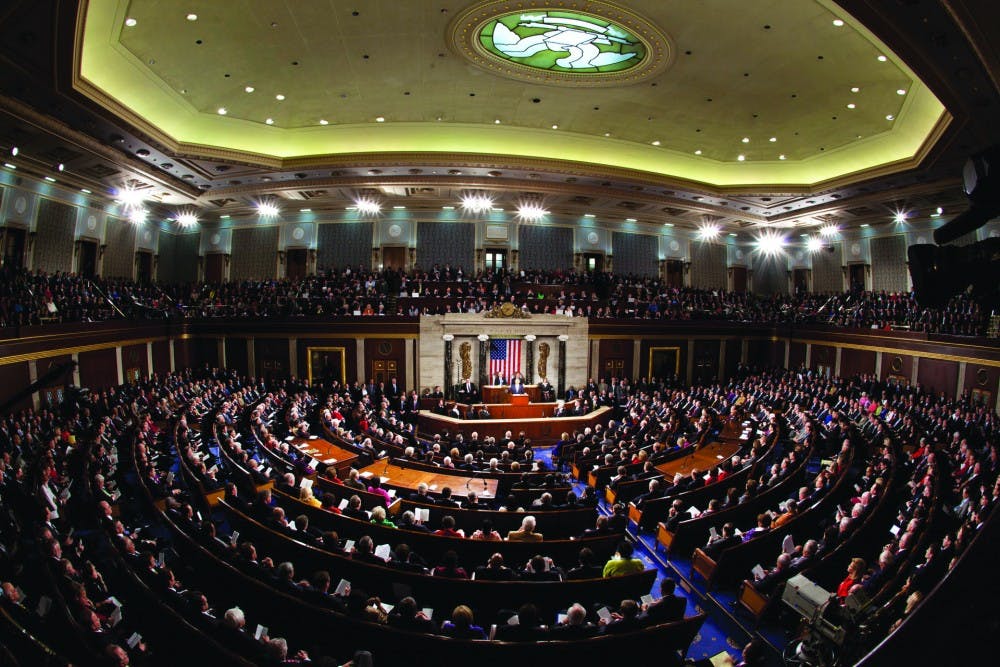By Editorial Board | Echo
President Donald Trump's first State of the Union address was televised from the U.S. Capitol building Tuesday evening to over 40 million viewers. In one of the longest addresses on record, President Trump told stories of American resilience in the face of adversity, expressed optimism regarding the ongoing changes his administration is ushering in and called for unity despite the deep political divide America is experiencing today.
"Tonight, I call upon all of us to set aside our differences, to seek out common ground and to summon the unity we need to deliver for the people," President Trump said.
Indeed, the tone of this address seemed to differ greatly from Trump's speeches in the past. Some have called his speech Tuesday more presidential than we've seen from him thus far. The transcript even reads somewhat grand, as a gleaming declaration of goals and successes under this administration.
Despite the rhetoric change, his words have fallen remarkably flat for many. The Washington Post Editorial Board put it perfectly Wednesday morning, asking, "Have a president's words ever rung more hollow?" This year's State of the Union address happened within a particularly troubling context - from the ongoing Russia probe, to Trump's recent backhanded insults toward certain ethnic groups, there was a lot for the president to move past in his address.
Does it make a difference, though? Well, history has taught us that perhaps a change in rhetoric or even a bad context do not affect much with regards to State of the Union addresses, because the address is not necessarily meant to sway public opinion.
"I think after listening to it, people who already liked the things Trump highlighted still like them, and people who already disliked them still dislike them," said senior Alex Berends.
That is traditionally true. Many a national opinion survey has proven that people don't often change their mind following a State of the Union address. Presidential approval ratings are also unlikely to be influenced, said Professor of Political Science Jakob Miller, citing research.
Miller went on to say that the minds of legislators are unlikely to be changed in the aftermath, either. Why do we have a State of the Union address, then? Does all this research render the annual State of the Union address futile and obsolete?

"The State of the Union isn't meaningless," Miller said. "It serves as a useful symbol of what an administration finds important, and as a barometer of issues that are currently concerning Washington. It is also one of the few political addresses that gets widespread coverage, helping to boost political awareness in the viewing audience. But in terms of having an actual impact, the last State of the Union will be just as effective as all the others: not very."
It is unlikely this State of the Union will serve as a unifying event for lawmakers, like the president's address might have been intended, and not simply because of what we've seen in past addresses. Indeed, it is made even less likely because of the troubling context in which it was given, making many of the president's claims ring especially hollow. Political unification is far more likely to happen in action than in the aftermath of any speech. Perhaps Trump's shift to storytelling from bullying is a step in a more civil direction, but time and Twitter will tell.
This is an opinions article and does not speak on behalf of all members of the Taylor community or university as a whole.



